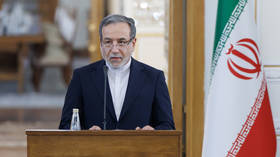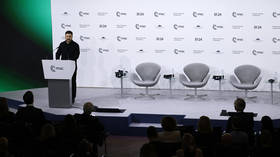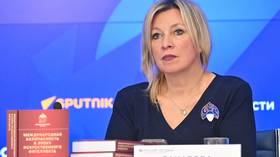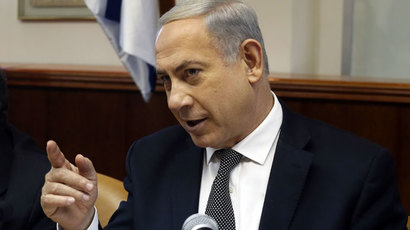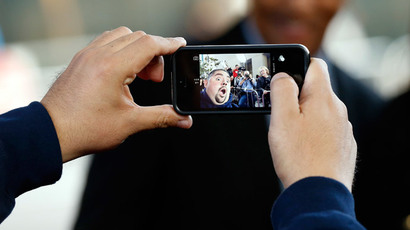NSA blowback: Top 8 political scandals sparked by Snowden leaks
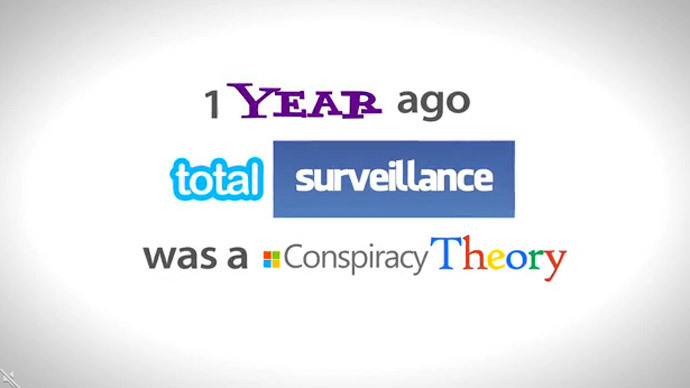
The Snowden revelations hit like a bomb, sending out shrapnel which risked severing US ties with friendly and not-so-friendly states alike. Here are the top eight bilateral debacles sparked by NSA spying, whose fallout could be felt for years to come.
8. Afghanistan & Bahamas: Wiretap paradise
One is an economically prosperous island paradise which doesn’t even have a military, the other a landlocked and war-torn nation racked by poverty and an extreme climate. So what could they have in common? Both countries have almost all of their domestic and international calls recorded and stored by the National Security Agency (NSA) for up to 30 days. Rumblings in the Bahamas have been muted. As for Afghanistan, the biggest political fallout comes from already NSA-weary Western allies, who are asking Washington why it needs to record the phone calls of law-abiding Afghans.

7. Here’s to the Reset!
American spies operating out of the UK intercepted the top-secret communications of then-Russian President Dmitry Medvedev during the 2009 G20 summit in London. Barack Obama definitely came out of the situation looking as two-faced as Batman's Harvey Dent, as Medvedev’s missives were seized just hours after his first meeting with the US president, where they struck a warm tone and promised a “fresh start” in US-Russia relations. The leaks came just before Obama met current President Vladimir Putin on the sidelines of what just might be the last G8 summit in history. One only need to follow the arc of the last 12 months to realize that the US-Russia reset was not only on its last legs by that point, but a sarcophagus was being built around it.

6. Spying on Israel
'America's aircraft carrier in the Middle East' was seemingly taken for a ride when it was discovered that the NSA had been spying on the country’s leadership for years. "The secret is out," Transportation Minister Yisrael Katz said. "The US is systematically spying on the defense and diplomatic leadership here in Israel. Is this how friends treat each other?" Prime Minister Benjamin Netanyahu remained silent at first, and then asked for “an examination of the matter,” proving himself to be uncharacteristically taciturn in contrast with not only other politics from the Jewish state, but other state leaders targeted by US snooping. Perhaps Bibi knew something the rest of them didn’t.

5. What was that you said about Chinese hackers?
The US has been beating the China cyber crime drum for years, so when it was revealed that the US was not only spying on the country’s top leaders, but also Chinese telecom giant Huawei, national banks,and the Chinese Trade Ministry, well, Washington had a lot of explaining to do. The United States tried to split hairs, claiming that everyone engaged in military espionage and that intellectual property theft was the real issue. Chinese Defense Ministry spokesman Colonel Yang Yujun, however, certainly didn’t see it that way, accusing the US of “double standards” and "hypocritical conduct” regarding the internet.

4. Que diabo??? Brazil gets quite irate
Most leaders did their best to keep up appearances after finding themselves with NSA egg dripping down their faces, but Brazil’s President Dilma Rousseff threw everything but the kitchen sink at her northern neighbor for spying on her, the country’s citizens, and its strategic industries. Rousseff canceled an official trip to Washington, blasted the US on the floor of the UN for breaching international law, and called on the world body to oversee a new global legal system to govern and safeguard the internet. For Rousseff, the issue was cut and dried: “The right to safety of citizens of one country can never be guaranteed by violating fundamental human rights of citizens of another country." Ouch.

3. Ich bin ein Berliner?
For a child of the German Democratic Republic who grew up under the shield and sword, revelations that the NSA was tapping her phone were particularly hard on Chancellor Angela Merkel.To add insult to injury, the US government has refused to grant her access to her NSA file or even answer formal questions from Germany about its widespread snooping. To this day, some in the German government are doing their best not to rock the boat, while others believe Washington has long since lost its mooring. In April, the German government opened parliamentary investigations into NSA spying. The question on whether or not to let Snowden into the country to testify is still a political hot potato. As John F. Kennedy once said: “All free men, wherever they may live, are citizens of Berlin, and therefore, as a free man, I take pride in the words ‘Ich bin ein Berliner!’” Indeed.

2. You don’t know how lucky you are…
Perhaps one of the biggest political rifts inspired by the Snowden scandal had nothing to do with actual NSA spying, but rather the fate of the whistleblower himself. After revealing his leaks while hiding out in Hong Kong, Snowden managed to flee the city state despite having an invalidated passport. While the former NSA contractor had set his sights on sunnier South American pastures, he ended up stranded in the transit zone of a Moscow airport. At the time Putin said Snowden could stay in Russia if he stopped damaging “US interests.” After nearly a month in limbo and mutual diplomatic posturing, Moscow granted Snowden temporary asylum.
Snowden certainly didn’t start the US-Russia drift, nor did he create the massive rift that erupted this past February over Ukraine. But as things have gone from bad to worse between the two former Cold War rivals, Snowden’s definitely played a part in that drama. When asked what he was doing in Russia by those on Capitol Hill who accused him of spying for the enemy, his answer was simple: “Ask the State Department.”

1. City on a hill, landside on the horizon?
At the very center of the NSA spying scandal has been the US public itself, which seems to have been overwhelmed by the lengths to which its leaders have flirted with being a security state at the expense of a free one. In late January, Pew found that 70 percent of Americans didn't believe they should surrender their freedom in order to be safe from terrorism. Those surveyed were virtually split, however, over whether Snowden's disclosures helped or harmed the US. On May 22, the US House of Representatives passed the so-called NSA reform bill, intended to reign in the agency’s dragnet domestic surveillance programs. Glenn Greenwald, who helped Snowden leak the sensitive documents, says the game changer is on the horizon, as he prepares to reveal a list of those in the US who were targeted by the agency. As for Snowden, his goal was always to start the conversation, and whether America changes course or pushes full steam ahead, he has no regrets.
"It's important to remember that people don't set their lives on fire and burn down everything they love for no reason," Snowden said. "I’ve gained the ability to go to sleep at night, and I feel comfortable that I’ve done the right thing."





